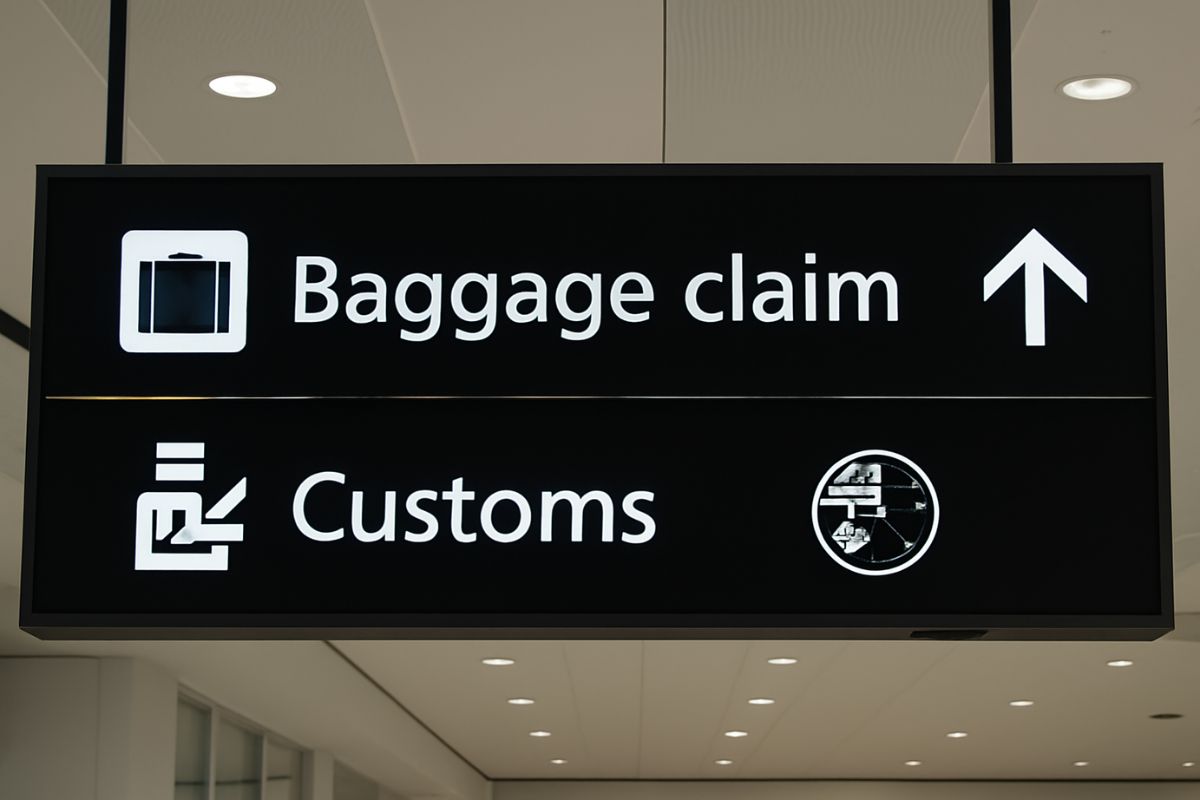Australia is famous not only for its wide-open landscapes and unique wildlife but also for having some of the toughest border controls in the world. For travellers, especially those coming from places where carrying cultural or homemade items is normal, these rules can be surprising and expensive.
An innocent snack, a flower garland, or a gift for friends can lead to penalties of up to AUD 2,664 (about ₹1.5 lakh) or even the cancellation of a visa.
Why Australia Takes Biosecurity Seriously
Australia is an island with a unique ecosystem, and it protects that ecosystem fiercely. Pests, seeds, and bacteria found in everyday items can harm agriculture and wildlife. This is why customs officers enforce strict biosecurity rules. They have the power to issue on-the-spot fines and even cancel visas.
The golden rule is simple: declare everything. If you’re unsure, mark ‘yes’ on your passenger card and let officials decide. Officials may confiscate declared items, but they fine travellers thousands for undeclared ones.
15 Items That Commonly Get Travellers Fined
Australian customs officers closely inspect baggage, and even everyday items can trigger fines. From food to flowers, here are the 15 common things in your luggage that can land you with a penalty.
1. Fresh Fruit and Vegetables
Even one apple or tomato can introduce pests and plant diseases. All fruits and vegetables must be declared or risk being seized with a fine.
2. Herbs, Spices, Raw Nuts, and Seeds
These items may carry fungal spores, larvae, or bacteria. Seeds are especially high-risk, as they can germinate and disrupt local ecosystems.
3. Fresh or Dried Flowers
Bouquets, garlands, or dried arrangements can harbour insects or plant matter. They are routinely seized if not declared at customs.
4. Dairy Products
Milk, cheese, and yoghurt can carry diseases harmful to livestock. However, authorities may sometimes allow commercially packaged items, but travellers must still declare them.
5. Indian Sweets
Popular sweets like Rasgulla, Gulab Jamun, or Soan Papdi often contain dairy. These are almost always restricted and should never be carried undeclared.
6. Uncooked Rice
Tiny insects can survive in uncooked rice during transit. Travellers must declare it, but officials often confiscate it anyway.
7. Tea
Certain loose-leaf teas may contain seeds or dried flowers. Officials check them carefully, so always declare before carrying.
8. Homemade Food
Any food prepared at home, whether pickles, curries, or snacks, is a red flag at customs. These are usually destroyed if undeclared.
9. Honey and Beeswax
Bee-related products can spread diseases affecting local bee populations. They are tightly controlled and rarely allowed.
10. Pet Food
Animal-based products are treated as high-risk. Meat, bone meal, or even packaged treats can lead to fines.
11. Feathers, Bones, and Skins
Souvenirs or decorative items made of animal parts may carry diseases. These need strict clearance or will be seized.
12. Traditional Medicines
Ayurvedic and herbal remedies with plant or animal ingredients often fall under banned categories. Packaging rarely makes a difference.
13. Food taken off a plane or ship
Travellers cannot carry leftover snacks or meals from their flight into Australia and must leave them behind on the aircraft.
14. Items with Feathers
Travellers can bring down jackets, quilts, or sleeping bags only if they declare them. Officials may confiscate these items if travellers leave them unchecked.
15. Odd Bans Like Radish or Cotton Rakhi Threads
Authorities surprisingly flag certain cultural items like radishes for Lohri or cotton threads used in Rakhi, while they generally allow decorative rakhis with plastic or metallic elements.
Penalties for Violating Airport Rules
Fines start at AUD 1,980 and can go as high as AUD 2,664 for undeclared items. In extreme cases, travellers risk losing their visa or facing criminal charges. Baggage inspections, sniffer dogs, and biosecurity screenings are common at airports, and even the smallest slip can cost you.
- Spot fines go up to AUD 2,664.
- Serious breaches may lead to visa cancellation or even imprisonment.
- Officials seize and destroy all intercepted food or plant items immediately.
Final Takeaway for Travellers
Australia doesn’t take chances with its borders, and you shouldn’t either. If you’re not sure about what’s in your bag, declare it. Taking a minute at the counter is much better than facing a fine in the thousands.
Follow and connect with us on Facebook, Twitter, LinkedIn, Instagram and Google News for the latest travel news and updates!
